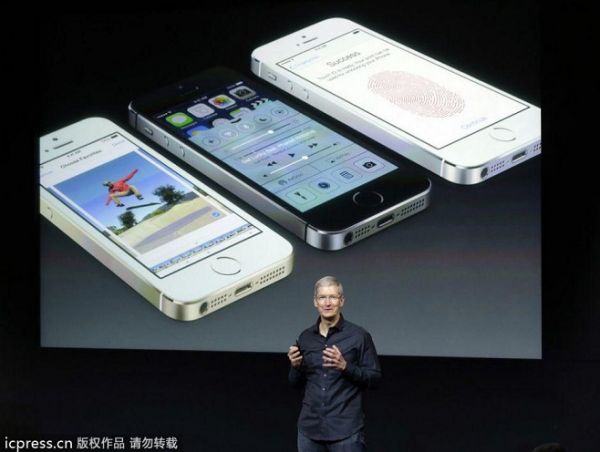


By Hao Daqin (郝大秦), vice president of Beijing Shuanggao Zhiyuan Management Consulting Company.
September 12, 2013
Economic Observer Online, Commentary
Translated by Laura Lin
Original article: [Chinese]
Apple released the iPhone 5c and 5s in Beijing last week, marking the first time ever that Apple has chosen the world’s biggest market for a launch. The company seems to hope that the two new smartphones will help the brand here, where it hovers alternately between fifth and sixth place in China’s smartphone market share.
But Apple’s share price dropped 2.28 percent the day of the launch. This was followed by three investment banks, including UBS, lowering Apple’s stock rating and a further 5.82 percent fall in the share price. In other words, the company’s market value plummeted by $35.1 billion in just two days. To add insult to injury, the lackluster reviews of the two new phones coming from China’s major websites are no doubt making the company’s public relations team nervous.
Are the New iPhones Really That Bad?
The 5s model actually offers new functionality. For instance, it applies fingerprint recognition technology to an Apple product for the first time. And the 5c’s color options offer some value. But they’re not good enough — not “genius” enough — and buyers and reviewers alike complain that they’re priced too high for the Chinese market.
Steve Jobs himself was not a technical genius, but he was absolutely the world’s top talent at capturing and amplifying customer excitement. When the iPod was developed, many industry insiders were critical, opining that the gadget’s only real worth was its large capacity. Its sound quality was ordinary, they said, the headsets were bad, some didn’t even have LCD screens, and the price was over the top. But what Jobs understood better than anyone was a capacity so large that the enthusiast could listen to music anytime and anywhere. He thought it would revive Apple. And it did.
From iPod to iPhone to iPad, Apple and Steve Jobs brilliantly conceived and created new categories of personal electronic products; not to mention the Apple legend. But however great that legend is, no business can escape from the constraints of the market’s total capacity. The question is, after being the top dog for so long in the smartphone industry, how can Apple make its next breakthrough?
Apple so far enlarged its industrial cake by depending on the iPhone. It suppressed the market share of other mobile empires such as Nokia, thanks to its sense of fashion and freshness.
But things have changed. When Apple launches a new version, it depends on its existing customers to upgrade, while at the same time facing competition from Samsung and other strong brands that are also fresh and trendy. This is particularly true in the Chinese market, where the low-cost advantage of its local smartphones is hard to shake. If Apple products don’t offer a major breakthrough — and if the price remains high — users won’t support the company. It seems unlikely that Apple’s new models in China will do much to change its standing there.
Whether Apple is aiming for a bigger market share in China or simply wishes to maintain its top position in the global market, it has to keep capturing customer excitement.
Unfortunately, Jobs is no longer there to help.
His glorious legacy won’t last if Apple continues to rely on existing products, with no real advances offered in new models. At least that’s how the investment banks feel. Unless Apple can break through in something new — smart watches, for example — and replicate its previous pioneering spirit and marketing ability, it won’t escape from the rule that a given brand can occupy a leading position for only a few years.
This would require a new super talent. Is Apple going to find it?
News in English via World Crunch (link)